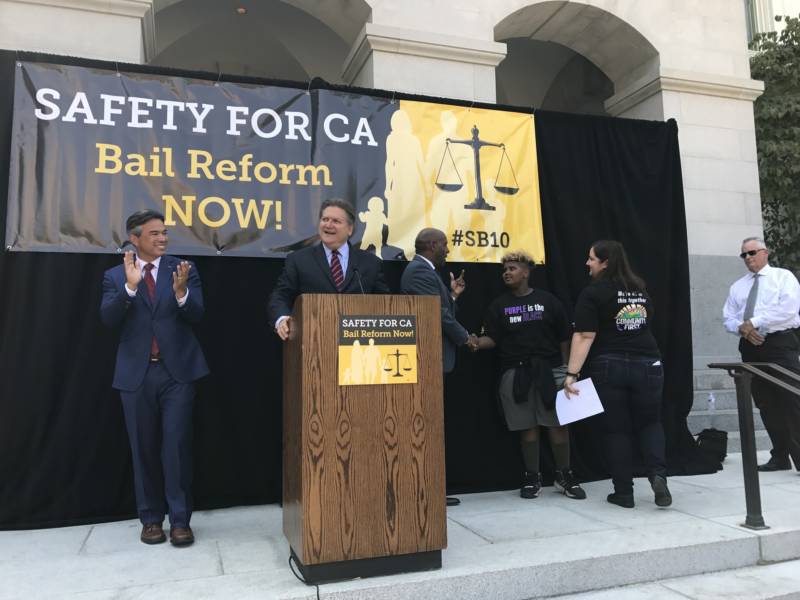A new state law set to take effect next year that would eliminate cash bail in California appears likely to stall until it's put before voters in late 2020.
Spearheaded by the state and national bail industry, proponents announced Tuesday that more than 576,745 signatures in support of a voter referendum on Senate Bill 10 had been submitted to elections officials. That's over 200,000 more signatures than is required to get the referendum on the November 2020 ballot.
The law changes pretrial detention in California — eliminating county-by-county bail schedules that set the amount of down-payments a defendant can post to be released pending trial, based on the alleged crime. Under the new system that was set to take effect in October 2019, defendants' flight risk and threat to public safety would be evaluated as low, medium or high, and judges would decide who goes free and who should remain in jail awaiting trial.
American Bail Coalition spokesman Jeff Clayton called SB 10 "a reckless attempt to reform the states' bail system" in a written statement announcing the submission of signatures for the referendum. He noted that civil liberties groups, including the ACLU, withdrew their support for SB 10 after a series of late amendments.
"SB 10 is the perfect example of last-minute deal making by the Governor, the legislature and labor unions absent input from all stakeholders," said Clayton.
